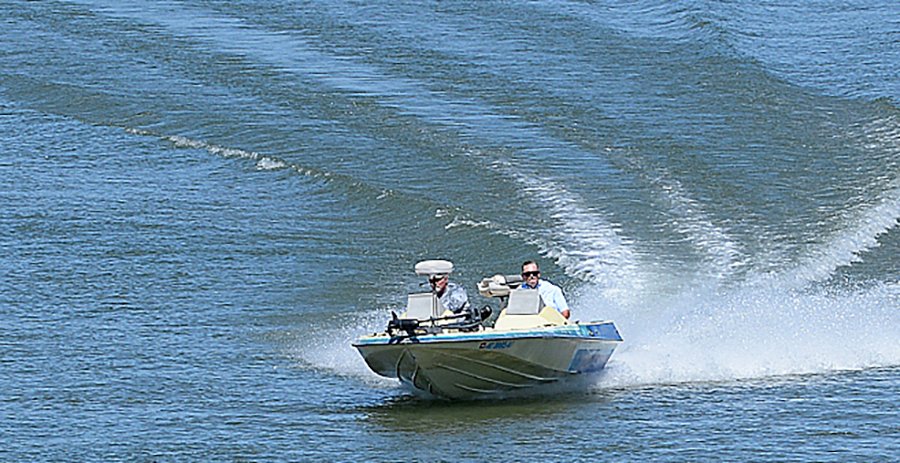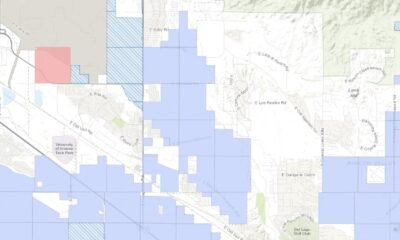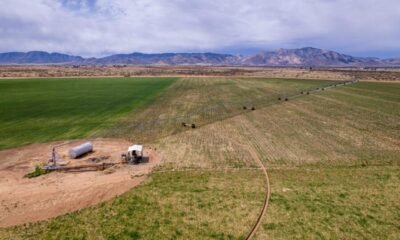Central Arizona Project
Colorado River Gathering Leaves Arizona Water Officials with Mixed Feelings

Arizona’s water community exited the recent Colorado River Users Association conference with uncertain reflections on future negotiations. Key figures, including Arizona Department of Water Resources Director Tom Buschatzke and Central Arizona Project Board President Terry Goddard, attended alongside representatives from seven states. Media reports indicated heightened tensions, particularly between the Upper and Lower Basin states.
Currently, the renewal discussions for the Colorado River compact, which expires in 2026, remain unresolved. Goddard expressed a more optimistic outlook post-conference, though he described the overall atmosphere as “mixed.”
“Serious informal discussions occurred; key individuals were engaged, which is a significant step forward,” Goddard commented. In contrast, Buschatzke, acting as Arizona’s chief negotiator, noted little progress had emerged from the conference, reinforcing the prevailing uncertainty.
The impasse centers around the necessary reductions in water use to sustain supply across the seven states. The Upper Basin includes Colorado, Wyoming, New Mexico, and Utah, while Arizona, California, and Nevada comprise the Lower Basin. Lower Basin representatives argue they’ve already implemented substantial cuts and seek reciprocal reductions from the Upper Basin, which insists on maintaining current usage levels.
During the conference, Goddard characterized the Upper Basin’s proposal as “very disorganized,” lacking a coherent strategy. “Their position seemed weak, leading to essential discussions on future collaboration,” he stated.
Buschatzke, along with colleagues from California and Nevada, presented a Lower Basin proposal characterized as a “middle-ground” approach. He highlighted the evident divergence in perspectives during the conference.
Unprecedentedly, this year’s conference did not feature a joint presentation from the seven states regarding the river’s status. This decision was made by Utah representatives, which affected the dialogue format.
Further illustrating the tensions, conflicts arose between California and Wyoming negotiators over their respective plans. California’s J.B. Hamby criticized the Upper Basin for alleged misallocation of water resources, to which Wyoming’s Brandon Gebhart responded with vehement disagreement.
As frustrations mount, discussions have emerged surrounding alternative pathways to reach an agreement. Buschatzke confirmed requests for state funding to brace for potential legal disputes as well as a recent vote by the Central Arizona Project for the federal government to evaluate a “compact call.”
A compact call would authorize the Bureau of Reclamation to impose cuts on Upper Basin states for the Lower Basin’s benefit. Goddard acknowledged that this board decision sparked considerable conversation at this year’s conference, suggesting it remains a viable option.
Buschatzke emphasized the severe consequences that a compact call could impose on Upper Basin states compared to voluntary reduction proposals currently on the table.
While some parties, including the CAP, are exploring a compact call should negotiations stall, Governor Katie Hobbs refrained from commenting on those possibilities. “These are hypotheticals,” she told the Arizona Capitol Times, emphasizing ongoing processes.
Despite existing tensions, Hobbs expressed cautious optimism and underscored the necessity for Upper Basin states to offer meaningful compromises. “The Lower Basin cannot bear the brunt of any cuts that come; we will advocate for our needs,” she asserted.
Goddard stressed the importance of keeping all options open to secure a resolution that would be subsequently approved by both Arizona’s Legislature and Congress. “We prefer the states to negotiate directly without federal or court involvement,” he noted, yet acknowledged the need to consider legal avenues if discussions falter.
He outlined an ideal timeline, aiming for productive negotiations throughout 2025, culminating in a finalized agreement by 2026. Despite potential alternative strategies, both Buschatzke and Hobbs reiterated their commitment to pursuing negotiated outcomes over litigation.
“The state of Arizona wants a negotiated outcome,” Buschatzke affirmed. “We do not seek litigation.”

















